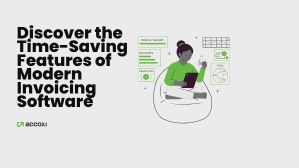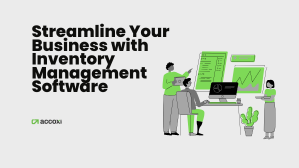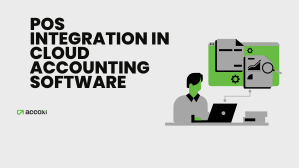

by Alex K Joseph, February 07, 2024

Today, securing your accounting data is not just good practice; it's imperative. As businesses rely more on technology for financial processes, the need for robust accounting data security measures becomes paramount. In this guide, we'll explore ten practical accounting security tips that you can implement immediately to safeguard your financial data and ensure peace of mind.
Keeping your accounting software up to date is the first line of defense against security threats. Regular updates often include security patches that address vulnerabilities. Ensure that your accounting software, operating systems, and antivirus programs are always running the latest versions. Cloud accounting softwares can offer you better security compared to traditional solutions.
Passwords are the keys to your financial kingdom. Enforce strong password policies, including a combination of uppercase and lowercase letters, numbers, and special characters. Regularly update passwords and discourage the use of easily guessable information.
Add an extra layer of protection by implementing multi-factor authentication. This requires users to provide multiple forms of identification before accessing sensitive financial data. MFA significantly enhances your accounting data security.
Encrypting your financial data ensures that even if unauthorized access occurs, the information remains unreadable. Invest in robust encryption tools to safeguard sensitive financial information both in transit and at rest.
Data loss can be catastrophic. Regularly back up your financial data to secure cloud storage or an external drive. This practice ensures that even in the event of a security breach, you can quickly recover your crucial financial information. Instead of non-productive accounting activities, make data backup a priority.
Human error is a common factor in security breaches. Educate your team on security best practices, including recognizing phishing attempts, avoiding suspicious links, and reporting any unusual activity immediately.
Limit access to financial data to only those who require it for their roles. Implement strict access controls, ensuring that employees have the minimum necessary access to perform their duties. Regularly review and update access permissions.
Keep a vigilant eye on account activity. Implement auditing features within your accounting software to track changes, logins, and any unusual activities. Early detection is key to preventing security incidents.
While digital threats are prominent, physical security is equally important. Restrict physical access to servers and computers containing financial data. Implement security measures such as access cards and surveillance. Moving your business from offline to online is a smart move. Know these efficient security best practices to make the most of it.
Periodically assess your accounting security measures through thorough security audits. This includes reviewing software configurations, access logs, and updating security policies. Identify and address vulnerabilities promptly.
In conclusion, accounting security is not a one-time task but an ongoing commitment to protecting your financial data. By implementing these ten practical tips, you can significantly enhance your accounting data security posture and fortify your business against potential threats.
Ready to take your accounting security to the next level? Book a personalized demo of Accoxi's cloud accounting software today and discover how you can revolutionize your financial processes while ensuring top-notch security.


